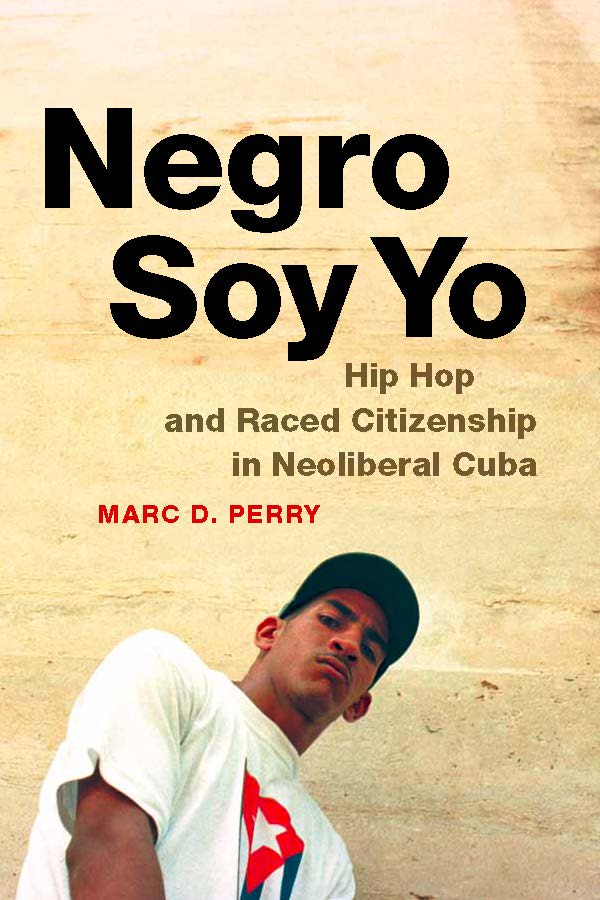Interview with Author Marc D. Perry
Marc D. Perry, author of Negro Soy Yo: Hip Hop and Raced Citizenship in Neoliberal Cuba (Duke University Press), chats with KU about Open Access.
Why did you agree to allow your book to be included in the Knowledge Unlatched Round 2 Collection?
As a scholar it is important to make my work as widely circulated and accessible as possible both within and beyond the academy. As a transnational ethnographer, one who writes about overseas communities and the lives of people I know and with whom I share history, it is all the more important that my work be accessible to these communities including local scholars and intellectuals, bearing in mind the added language challenge given my research’s Cuban locale. Given my emphasis on the politics of popular culture and music it is also important that my work be accessible to other, often non-academic audiences including musicians, artists, and cultural activists. Open Access through Knowledge Unlatched’s Creative Commons licence unquestionably helps facilitate this wider global circulation and entrée to my book while ultimately contributing to greater, more democratic access to scholarly knowledge.
What are your hopes for your book, and do you think Open Access will play a role in achieving them?
Given the historical significance of the current moment regarding recent U.S-Cuban openings, I hope that my book will contribute to more nuanced understandings —in the U.S., Cuba, and beyond— of the social and racial complexities, challenges, costs, and well as the potential possibilities involved in Cuba’s rapid opening to global markets. Open Access through Knowledge Unlatched will ideally broaden the potential range and impacts of such efforts.
What do your friends/colleagues think about your decision to allow your book to be made available for free under a CC licence?
My friends and colleagues are overwhelmingly excited about open digital access to my work under a Creative Commons license. Among colleagues, many have expressed excitement about the chance to teach specific chapters or book segments in their classes in digital form.
Who would you most like to read your book and why?
In addition to U.S. scholars, I hope that English proficient Cuban artists, intellectuals, and scholars, coupled with the growing multitude of U.S. undergraduate and graduate students that will be flocking to Cuba in the coming years to study and conduct research will critically engage my work. Among this latter community I hope my book will offer an important counter-balance to popular U.S. media representations that tend to reproduced uncomplicated Cold War or tourist-centric perceptions Cuba and its revolution.
Were you interested in Open Access before you became aware of Knowledge Unlatched?
Beyond the often frustratingly limited access provided through Google Books, I unfortunately was not all that aware of Open Access to scholarly books before my involvement in Knowledge Unlatched.
Any other comments?
I am thankful to Duke University Press and Knowledge Unlatched for enabling my participation in the project. I hope that many more scholars will embrace Open Access in the future with the aim of making scholarly knowledge more globally and indeed democratically accessible.
Marc D. Perry is Assistant Professor of Anthropology and African and African Diaspora Studies at Tulane University.




